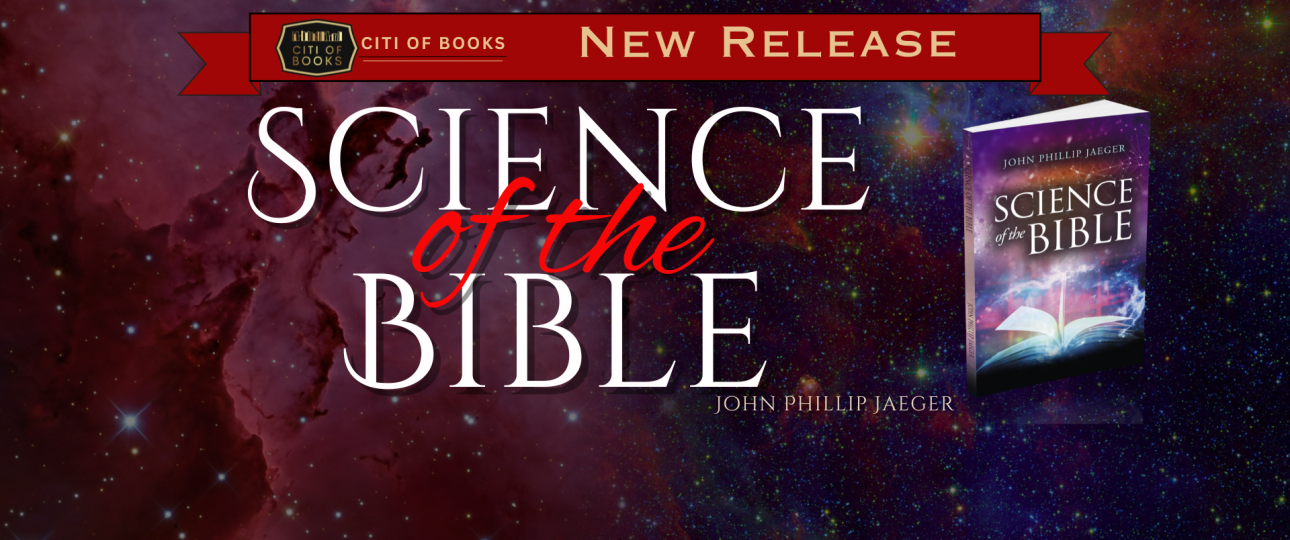
In “Science of the Bible,” John Phillip Jaeger embarks on a mission to reconcile the perceived divide between science and Scripture. Through eight meticulously themed chapters, Jaeger presents a compelling argument that modern scientific discoveries do not contradict religious doctrine; rather, they reinforce it. Proudly published by Citi of Books, this is now available on Amazon, Barnes & Noble, and other major retail platforms.
John Phillip Jaeger was born and raised in Granite City, Illinois, the son of a welder and a cook. Thanks to his brother, Gene Armes, who brought John to California to go to college, John earned a chemical engineering degree and a master’s degree in business administration.
He married his college sweetheart, and together they traveled the world with their two daughters. John is a certified diver, licensed pilot, triathlete, marathoner (PR 3:07), and expert snow skier who currently plays tennis six times a week using the Y-string racket he designed and built to minimize framing mishits (Non-Provisional Patent Application No. 17/706, 841).
He has been widely published in national newspapers and magazines to educate the public and correct misinformation, and toward that end, he finally published Brilliant Creations: The Wonder of Nature and Life, an inspirational science book described by Dr. John Orosz as beyond incredible and, by The Book Commentary, as pure genius.
With a blend of passion and polemic, “Science of the Bible” critiques atheism while extolling the harmony between biblical texts and scientific principles. By introducing the concept of “Profound Fortuitous Interdependencies,” he invites readers to view these interconnections as evidence of divine design.
Jaeger’s book weaves together scientific history, biblical passages, and contemporary studies to validate Christianity through a scientific lens. Starting with the creation narrative in Genesis and culminating in discussions about entropy and heat death, he explores a range of topics including cosmology, molecular biology, psychology, and ethics. His narrative is not just a collection of facts; it is driven by personal conviction, which he employs as a tool for both apologetics and critique.
The book’s interdisciplinary approach is one of its greatest strengths, as Jaeger synthesizes ideas from various fields—astronomy, quantum mechanics, biology, and theology—to support his central thesis. His energetic writing style, filled with citations and clever analogies, makes complex concepts accessible to a general audience.
In a cultural climate often polarized between science and religion, “Science of the Bible” offers a vivid and uncompromising defense of the Christian worldview grounded in both Scripture and scientific reflection. For those willing to explore the idea that faith and fact can coexist, Jaeger’s work is both provocative and rewarding, suggesting that the universe indeed reflects a divine order, and that faith and science may not be adversaries, but allies in the pursuit of truth.

“Science of the Bible” by John Phillip Jaeger is now available for purchase through the links provided below:
- AbeBooks: https://www.abebooks.com/Science-Bible-Jaeger-John-Phillip-Citiofbooks/32148793671/bd
- Amazon: https://www.amazon.com/Science-Bible-John-Phillip-Jaeger/dp/B0DZQQXYCN/ref=sr_1_1?crid=1KPSS95BZAAVT&dib=eyJ2IjoiMSJ9.PxlALIPWcf3hy9rfOuharQ.MJCOrWvG074pXlHkimlVjvAeEM336t9O5Yt67kgfTgU&dib_tag=se&keywords=science+of+the+bible+john+phillip+jaeger&qid=1744917377&sprefix=science+of+the+bible+john+phillip+jaeger.%2Caps%2C1172&sr=8-1
- Barnes & Noble: https://www.barnesandnoble.com/w/science-of-the-bible-john-phillip-jaeger/1144655425?ean=9798893915358
- Citi of Books: https://citiofbooks.com/bookstore/nonfiction/science-of-the-bible/

